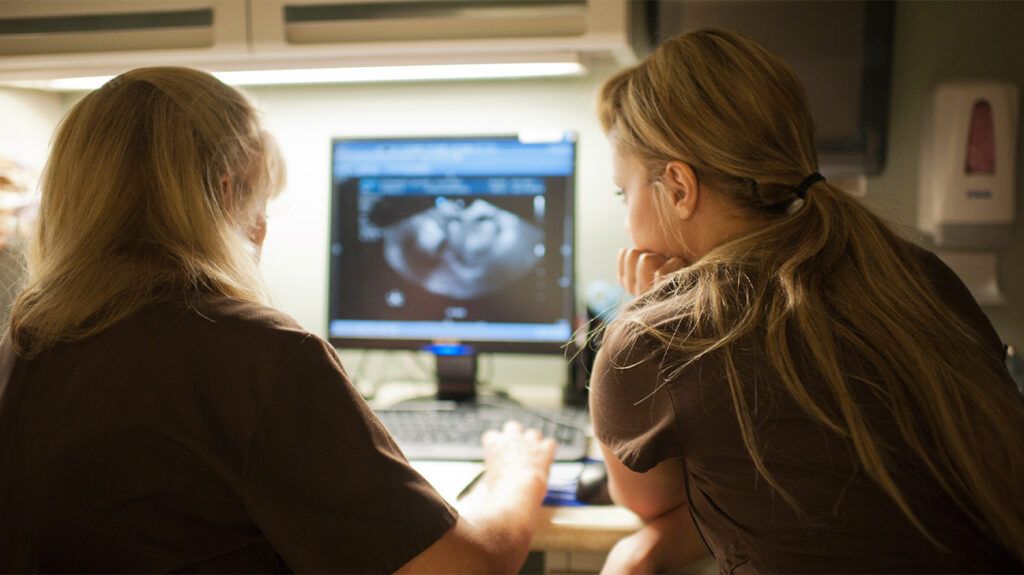Despite fetal alcohol syndrome (FAS) developing in fetuses, doctors cannot reliably use ultrasound to diagnose the condition. Diagnosis only occurs after birth.
FAS is the most serious form of fetal alcohol spectrum disorder (FASD).
A fetus can develop FASD in the womb when a pregnant individual drinks alcohol while pregnant. This alcohol exposure can cause problems with growth, learning, and behavior.
Content warning
This feature mentions pregnancy loss, stillbirth, or both. Please read at your own discretion.

Ultrasounds are imaging techniques. Doctors can use them to create images of a fetus as it develops within the womb.
A
The authors suggest that ultrasounds may one day help with diagnosing FASD if doctors use them in combination with other techniques. However, scientists have not tested this suggestion.
Pregnancy and parenthood resources
Visit our dedicated hub for more research-backed information and in-depth resources on pregnancy and parenthood.
According to a
- confirmation of prenatal alcohol exposure
- unusual facial shape or features
- inhibited growth
- brain abnormalities
- cognitive or behavioral problems
Doctors can assess these criteria using observation, imaging techniques, and tests.
In the case of FAS, doctors
FASDs are incurable conditions. However, some treatment options can help manage symptoms. These interventions can vary from individual to individual.
For instance, the
- stimulants
- antidepressants
- neuroleptics, a type of antipsychotic
- anti-anxiety drugs
Behavior and education therapies can also help. These might include:
- training in social skills
- specialized help with mathematics
- programs that teach planning, organizing, and understanding other people
Parents or caregivers of children with FASD may also benefit from learning specific parenting techniques.
As a
Alcohol consumption during pregnancy can also
- preterm delivery
- pregnancy loss
- stillbirth
- amnionitis, which is an infection of the uterus
- placental abruption, when the placenta separates from the uterus
Anyone with concerns about alcohol consumption during their pregnancy should speak with a doctor.
Several organizations may help people affected by FAS.
For instance, FASD United provides advice and referrals for those with FASD as well as their caregivers. It can also advise people who have an alcohol use disorder and are pregnant or intend to be.
These individuals may also benefit from FindTreatment.gov, a resource that can help them find ways to manage their alcohol use disorder.
What can be mistaken for fetal alcohol syndrome?
According to a
At what stage of pregnancy does alcohol affect the baby?
As a
Fetal alcohol syndrome (FAS) is the most serious form of fetal alcohol spectrum disorder (FASD). It occurs due to alcohol exposure in the womb.
FAS can cause serious developmental issues, affecting both a person’s body and mind. These issues are what doctors base their diagnoses on. Ultrasounds during pregnancy do not provide a reliable means of diagnosing FAS.
FAS is preventable by avoiding drinking alcohol during pregnancy. Treatment for FAS may involve a mixture of medication and specialized therapies, but there is no known cure for the condition.


